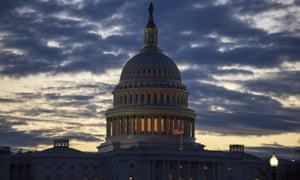For the past few weeks, the media has been dominated by the U.S. Federal government shutdown, which is now the longest in the nation’s history. Both Republicans and Democrats have been placing the blame as to who caused the shutdown on each other, and there is a lot of false information circulating about what the shutdown means for Americans. Here are some shut down basics and ways that the shutdown could affect you.
Every year on September 30, a fiscal year ends and a new budget must be passed by Congress. Usually, the President and Congress need a little more time so they pass what is called a continuous resolution (CR), which extends the previous year’s funding plan to a specific date. If the CR runs out before a new budget is determined, and no new CR is passed, a government shutdown occurs. This year, the budget included 5.7 billion dollars dedicated to President Trump’s highly controversial wall, which would be constructed along the U.S.-Mexico border. The wall was the major sticking point in debate over the new budget, and it is a significant reason that explains why the new budget has yet to be finalized.
So, how does this shutdown affect the average American? Some government programs that are deemed essential are still in operation and receiving funding, such as Social Security, Medicare, unemployment checks, most FDA food inspections, farming subsidies, veterans benefits, interest payment on the national debt, and active military duty. Public schools are also still receiving federal funding, but in general, most of the money spent on education comes from at the state and local level. This means that MHS and all other public schools are not too strongly impacted. Other programs like the National Park Service and the Smithsonian Museums are shut down because they are nonessential. Those working in nonessential agencies have been sent home, while those in essential agencies continue to work, unsure of when their next paycheck will come. One place where the effects of the shutdown are particularly evident are America’s airports. Those who work for the TSA and as air traffic controllers are deemed essential but are working without pay. As a result, thousands of TSA workers have been calling in sick to find temporary employment elsewhere until they can be guaranteed a paycheck. This means if you are planning on flying before the shutdown ends, you can expect significantly longer lines than usual at security due to a shortage of staff.
As a result of the shutdown, there has been enormous kindness shown by Americans, and even those abroad, towards federal employees working without pay. Canadian air traffic controllers have been sending pizzas on planes heading to the U.S. for their American counterparts to eat for lunch. Restaurants like Pauli in the North End of Boston have been offering free meals to federal employees. Some daycares have been allowing their clients who are employed by the federal government to send their children for free for the duration of the shutdown and pay back the balance when start receiving paychecks again.
Hopefully, the shutdown is drawing to a close as both the President and Congress have stated willingness to negotiate the new budget. There is even a possibility that this will happen by the end of this week. Still, as of now, many Americans employed by the government are going without pay, and some even looking for employment elsewhere.

